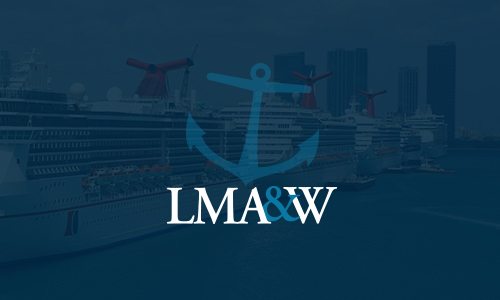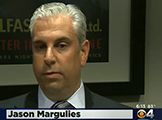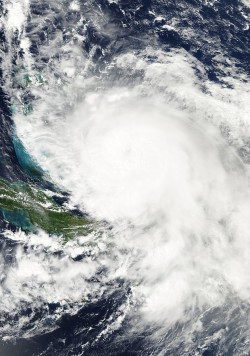Our Maritime Lawyers Have Collectively Recovered More Than $10 Million for El Faro Crew Members
Our maritime lawyers handled more El Faro crew member claims than any other lawyer in the world, and collectively resolved them for approximately $10 million. The El Faro was owned by TOTE Maritime and was operated by Sea Star Line. Below please find details from when the accident occurred, including our complaint and news appearances.
Commercial maritime companies have a responsibility to maintain safety aboard their vessels and to protect the rights of their crew members. Maritime laws, including the U.S. federal law known as the Jones Act, offer protections for seamen in the event that an injury or death is suffered as a result of negligent actions committed by either the vessel’s master or fellow crew members. In 2015, all 33 seafarers working aboard the El Fargo cargo vessel were lost at sea after taking on water and experiencing propulsion issues during Hurricane Joaquin. These victims were not sufficiently protected from perils at sea by their employer and were also placed in harm’s way by the ship’s captain, Michael Davidson, who kept sailing despite warnings that the storm would intensify.
The vessel had previously experienced issues with taking on water and became disabled while sailing from Jacksonville, Florida to San Juan, Puerto Rico near the eye of Hurricane Joaquin. None of the crew members survived. The shipping company that owns El Faro, Tote Maritime Puerto Rico, was aware that the then Category 4 hurricane threatened the area where the vessel would be sailing, yet, did not advise the crew to take an alternate route nor postponed the sailing. Had the sailing been cancelled or had the captain changed course, the maritime tragedy could have been avoided. As a result, Tote and the estate of the captain were held liable for the accident and the crew members’ loved ones had a right to file a seafarer claim based on the following facts:
- The hazardous conditions that the El Faro crew members faced during Category 4 storm conditions may be enough to warrant legal action.
- The fact that the vessel was 40 years old and had experienced prior structural issues, including a tendency to take on water, may be enough to warrant legal action.
- Because Tote allowed the El Faro crew to set sail, despite knowing that the vessel’s course would take the crew straight into the hurricane’s path thereby placing crew members at risk, the shipping company may be liable for damages to the families of the deceased seafarers.
- Because the captain of El Faro, Michael Davidson, continued sailing despite warnings that the storm’s forces would increase, the captain’s estate may be ordered to pay damages to the deceased seafarers’ families.
Our firm was entrusted with the immense responsibility of representing the families of seven of the crew members who were lost when the cargo ship sank during Hurricane Joaquin in 2015. Demonstrating our vast experience in maritime law, we filed lawsuits against Tote Maritime, the company that owned the ill-fated El Faro, alleging negligence and seeking to hold the shipowners accountable for the disaster. Our involvement underscores our firm’s commitment to seeking justice for those affected by maritime accidents and our dedication to upholding the rights of victims and their families.
Attorneys Michael Winkleman and Jason Margulies also discussed the specific rights of the El Fargo crew and those of the crew’s surviving loved ones, as well as the accident case in general on CBS, as well as other media channels.
Our firm recovered more than $10 million in compensation for victims of this disaster. This case, one of the deadliest maritime incidents in U.S. waters in recent history, is a testament to our dedication to our clients and their families.
The El Faro Distress Call
In the News
TV Appearances
Was the El Faro Maritime Accident Preventable?
There are many mysteries surrounding the tragedy of El Faro, the cargo ship that went missing after sailing into Hurricane Joaquin. For several days after the disappearance, families were holding out hope that the missing crew and ship might be found. However, the U.S. Coast Guard reported that the ship, which was carrying 33 crew members, sank in the high winds and rough seas produced by the storm and all those on board were presumed dead.
Even as searches continued, many questions remained. For instance, why did the ship sail into the deadly storm? According to CNN, the company that owned El Faro reported that the ship lost power during the storm, making it impossible for the crew to avoid the worst of the winds. Yet, the maritime accident lawyers at our firm and other experts questioned why the ship was on the water at all. Some argued that the ship was too old to be seaworthy.
At the end of the day, it is a captain’s ultimate decision about which course to chart. Captains generally keep a safe distance away from storms based on the National Hurricane forecasts. The higher the winds and the larger radius a storm takes up, the further away captains of ships will stay. As it stands, it isn’t clear whether the captain of the El Faro followed standard guidelines for navigating around a hurricane.
There are a variety of factors that could have contributed to the captain’s decision. El Faro was a shipping vessel, and pressure to deliver goods on time may have been a factor in the captain’s decision to maintain the vessel’s course. Deadlines for delivery may have also factored into the captain’s choice to press on, despite storm warnings.
Based on certain analyses, the captain would have been able to stay ahead of the storm, provided that all equipment maintained in working order. Depending on the size and sturdiness of a vessel, a cargo ship may be able to surpass waves generated during a hurricane if it can avoid getting hit by waves sideways. However, reports suggest that El Faro lost propulsion.
Yet, given the uncertainty of storm prediction, the disappearance of El Faro raises some serious questions about commercial shipping – and cruising – during hurricane season.
El Faro was an older vessel, which may have contributed to its propulsion failure. However, does this mean that older cargo and cruise ships are also at risk of stalling on the high seas? It’s certainly a possibility. But it all depends on how the safety measures taken by the shipping or cruise company.
Failing to update equipment on older vessels and neglecting to perform routine maintenance checks can lead to serious accidents while on the high seas. At this point, we don’t know whether safety negligence was a factor in the malfunction El Faro experienced, or even if the vessel would have withstood the hurricane’s force had it still be operating properly.
In normal weather conditions, if a ship experiences minor mechanical failure, the lives of those on board aren’t necessarily threatened. The ship can either be repaired or those on board can be moved to another vessel. Yet, during hurricane season, a stalled vessel can become extremely vulnerable to an impending storm’s force.
El Faro did not properly maintain the vessel in safe condition, ultimately contributing to the propulsion problem and tragic accident, which means survivors or loved ones of those who perished are entitled to compensation under the Jones Act.
Advocating for the Wrongful Deaths of El Faro’s Crew Members
Our top-rated crew-member injury lawyers have years of experience handling a wide variety of maritime accident and cruise ship injury claims, particularly those involving the tragic loss of crew members due to a captain’s negligence. Four of our attorneys have been selected as “Best Lawyers” ® and our firm has been chosen as one of the “Best Law Firms” ® in the U.S. by US News & World Report for nearly a decade. If your family member was working on a ship and disappeared, we will fight tirelessly to ensure the operator is held accountable.
Contact Lipcon, Margulies & Winkleman, P.A. immediately online or call our office at 877–233–1238 for a no-cost, risk-free consultation and connect with a respected maritime attorney today.
Other Companies Sued
- American Seafoods
- Antillean Marine Shipping Corp.
- Azamara Cruise Lines
- Carnival Cruise Lines
- Celebrity Cruise Lines
- Costa Cruise Lines
- Crowley Maritime Corporation
- Crystal Cruises
- Cunard Line
- Disney Cruise Line
- Holland America Line
- Icicle Seafoods, Inc.
- Island Queen Cruises
- Maersk Lines Limited
- Margaritaville at Sea
- MSC Cruises USA
- Norwegian Cruise Line
- Ocean Drilling & Exploration Company (ODECO)
- Oceania Cruises
- P&O Cruises
- Princess Cruise Lines
- Pullmantur Cruises
- Radisson Seven Seas
- Royal Caribbean Cruise
- Seabourn Cruise Line
- Silversea Cruises
- Starboard Cruise Services
- Steiner Transocean
- Tote Maritime & Sea Star Line (El Faro)
- The CMA CGM Group
- Tropical Shipping
- Viking Cruises
- Virgin Voyages
- Weeks Marine, Inc.
- Windstar Cruises









